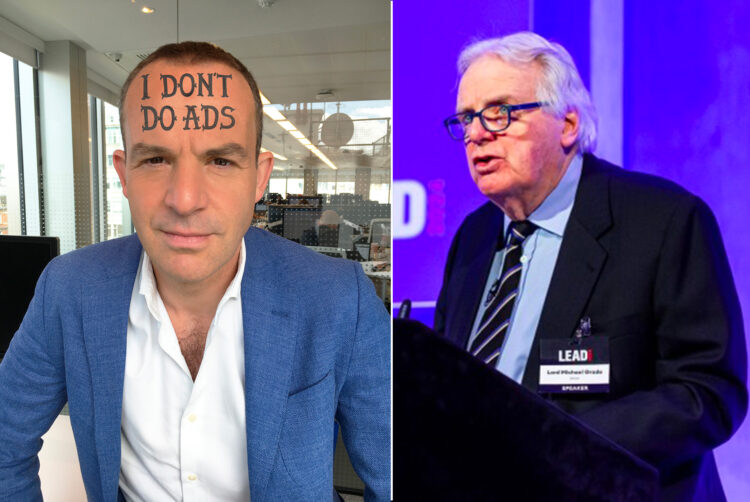The case for abolishing Clearcast

Opinion: 100% Media 0% Nonsense
Why do some parts of the media industry have systems for pre-approving what ads are fit to publish and others don’t?
Is it time to abolish Clearcast?
Should Radiocentre be relieved of its duties?
I ask these questions because it seems increasingly bizarre that the TV and radio sectors should continue to have “pre-clearance” systems that date back to a pre-internet age.
The broadcasters pay for these hygiene systems to comply with the UK Code of Broadcast Advertising (BCAP). For TV, they even pre-clear ads for broadcast video-on-demand (BVOD) even though that’s not covered by BCAP.
But the vast majority of ads run online are not pre-cleared and we rely on advertisers, not media owners, to put out ads that are legal and unharmful. Doesn’t this mean that TV and radio are now competing in an advertising ecosystem with one arm tied behind their backs?
Why don’t we insist that all media channels pre-clear ads before they are published?
The ‘shame game’
It’s particularly important to talk about this now as we enter general elections in the US and the UK later this year.
Deepfakes will be more troublesome than ever, political advertising is regulated even less than consumer advertising ,and more sophisticated AI tools have the potential to wreak more havoc than ever before.
And, as I discussed recently, the TV industry is changing as it is offered in different forms online. YouTube, Amazon Prime Video, Netflix and TikTok are not “telly”, but are now very popular forms of online video that carry ads. Either they need to become more like TV companies in how they are regulated and traded or TV needs to become more like them.
Step forward Ofcom’s Lord Grade, who reminded advertisers at last week’s LEAD conference that their money funds online content.
“For brands and agencies, this is about making trust and safety a priority,” Grade insisted in his speech. “Most of all, it’s about making sure the platforms you are spending money on are aware of their new duties under the Online Safety Act.
“Can you be sure that your online adspend isn’t damaging your valuable brands, by being algorithmed alongside awful, horrible content?”
Gordon Brown: Media and advertising play a key role in addressing poverty
Unfortunately the “shame game” doesn’t work any more.
It’s not like marketers and agencies haven’t heard this over and over again for years now. It’s not that major advertisers don’t care; it’s that they are now too small to make a difference.
Unilever and Procter & Gamble may still be among the biggest advertisers in the world, but they are just two of millions of advertisers that shovel money into Google, Facebook and Amazon every single day.
This is a huge and ignorant long tail of marketing activity driven by people who either don’t know or don’t care about online harms. And they certainly aren’t turning up to LEAD to hear Michael Grade speak.
Bring Clearcast online
Which brings us to Clearcast and Radiocentre.
The mandate to “pre-clear” TV ads goes back to the creation of ITV in 1955 and was formalised into the Broadcast Advertising Clearance Centre, which became Clearcast in 2007. Commercial radio has had a similar journey, with Radiocentre (previously the Radio Advertising Clearance Centre) responsible for pre-clearing radio ad copy.
It used to be considered a no-brainer by this industry that big, powerful media channels require some form of oversight of the advertising they produce before it is published.
Nowadays, they don’t come any more big and powerful than online platforms: social media, search ads, retail ads, online video ads.
So why don’t we have a version of Clearcast for online platforms?
Lindsey Clay, CEO of commercial TV marketing body Thinkbox, thinks we should.
Reflecting on LEAD on our podcast, she told the The Media Leader: “We understand that, with the open internet, they can’t — or they won’t — be responsible for the content, but they can be responsible for the ads if they want to make money out of them… What’s to stop the online industry from doing this? Other than cost and inconvenience?”
Clay pointed out that the Advertising Standards Authority (ASA) is spending “so much effort” into reactive work, when so much of that pressure could be relieved if the ads were pre-cleared in the first place.
So why doesn’t it happen?
Publish and be damned?
The answer, as usual, is because of money and politics.
Funding Clearcast and Radiocentre comes from TV and radio media owners respectively, not advertisers. Advertisers benefit from having a system where trust is built into those channels’ advertising operations, but also because TV and radio used to exclusively broadcast on “public airwaves”.
It was commonly understood that no-one “owned” these airwaves because they are a public good and that is why the government issues licences on behalf of the public for how TV and radio are used.
Apparently, the internet deserves all the protections of a public town square, namely free speech, but the public has no right to demand accountability for how it’s run as it did for TV and radio.
UK broadcasters have chosen to pre-clear BVOD ads, even though they don’t have to, because they know that the average viewer wouldn’t make the distinction between seeing an ad in Coronation Street as it goes out on air versus seeing it on ITVX an hour later.
Having different standards of clearance would lead to confusion and undermine trust in TV advertising overall.
Compare that with online platforms, where the viewer has to be pretty dense to trust anything they see at face value. Look at all the attention created by Martin Lewis over the use of his image to promote online scams.
It will only get worse as AI gets better and cheaper at creating deepfakes.
Time to regulate this unbalanced regulation
So rather than insist that online companies pre-clear ads, why don’t we just go the other way and abolish all pre-clearance systems?
Of course it’s great for TV and radio that they can show they are the most trusted channels because they have these systems in place, but clearly it’s not moving the dial much. The recent IPA and Advertising Association reports are a reminder of adspend continuing to migrate to less regulated online channels at the (increasing) expense of more regulated broadcast media.
So why are we asking TV and radio to continue fighting with one arm tied behind their backs?
Why not we just get rid of all pre-clearance for ads?
 Omar Oakes is editor-in-chief of The Media Leader
Omar Oakes is editor-in-chief of The Media Leader
100% Media 0% Nonsense is a weekly column about the state of media and advertising. Make sure you sign up to our daily newsletter to get this column first in your inbox every Monday, as well as key updates with what’s happening at The Media Leader and our upcoming events.




